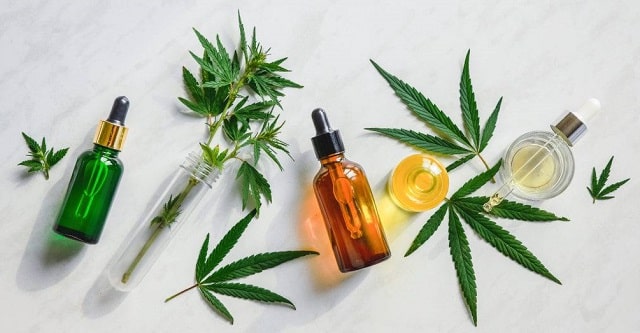
With CBD proving to be so effective at treating a range of physical and mental conditions, several new companies are popping up seeking to sell you their goods. CBD dabs, creams, edibles, capsules, and syrups – to name a mere five! – are increasingly available online and in stores up and down the country.
However, not every company proclaiming to sell CBD is selling high-quality products, if they are even selling CBD at all. The absence of regulation in this non-psychoactive cannabis industry has allowed snake oil salesmen to permeate the market, doing a disservice to consumers and even putting those reliant on CBD medication in danger. Seasoned CBD users will already have their favorite brands and be able to spot a fake from miles away, but those less knowledgeable about cannabidiol could get caught out.
In this post, we will learn more about Koi CBD and its effectiveness in treating mental health issues. If you’re serious about treating your anxiety, chronic pain, insomnia, inflammation, or whatever else it is you're battling with, keep this guide in mind.
1. Does The Product Contain Any THC?
Many opt for CBD over other types of medical cannabis because of the absence of hallucinogenic side effects – these are caused by the tetrahydrocannabinol (THC) component of the cannabis plant. This compound does have medicinal properties, notably as an anti-inflammatory, but the euphoria and general mind-altering traits of THC are off-putting to many, if not illegal. The best CBD oil products will contain a minimal amount of THC or none at all. Sometimes, traces of THC will make it into a whole-plant oil, but not in hefty enough concentrations to bring about a high.
2. Does The Product Have Freely Available Third-Party Laboratory Test Results?
The Food and Drug Administration (FDA) has a duty to protect the American public from risky products that could pose a danger to their health. However, while they do this for the hemp-derived CBD industry, products derived from general strains of cannabis are not subject to the same stringent regulations.
But third-party lab testing is very useful, even for the hemp-based industry. These provide consumers with something of a guarantee that the products they are buying are not just effective but safe too. It’s all very well for a company to put a “pure CBD” label on the packaging, but only with a third-party test can you ascertain the source and exact ingredients found in a product. Furthermore, if a company is prepared to show you their test results, you can be confident that they’re selling a good CBD product.
3. Is The CBD Product Made With Whole-Plant Extract?
The hemp seed extracts you can buy at grocery stores and pharmacies around the country do not have any CBD, despite essentially coming from the part of a strain of Cannabis Sativa. These products are still healthy and can have therapeutic uses, but if it’s CBD you’re after, these are simply no good.
However, a product made using all of an industrial hemp plant does contain CBD, other non- psychoactive cannabinoids, and an array of terpenes (therapeutic compounds found in cannabis and other plants). A product with an array of compounds allows for the entourage effect to occur, a synergistic reaction that enhances the medicinal properties of cannabis components.
4. Where Was The CBD Sourced?
The hyperaccumulating nature of industrial hemp plants has advantages and disadvantages. The added sensitivity to the soil helps the plant to absorb beneficial minerals and nutrients. However, the accumulation of metals and toxins is also ramped up. The process of hemp picking up metals from soils is called bioremediation. Therefore, these contaminants need to be taken out as much as possible during the extraction process.
CBD is very therapeutic and good for overall health, but unfortunately, some of the components that get into poor grade hemp-derived products aren’t. There has been a glut of low-quality “CBD oil” products coming in from China in recent years, and sadly these have done some damage to the reputation of CBD.
To avoid buying a bad CBD product, look for products that are made with organically-grown hemp, as this eliminates the prospect of dangerous pesticide remnants getting into the CBD oil. Lab test results can also help confirm whether mercury, lead, or other metals are present in an oil.
5. What’s An Ideal CBD Oil Dosage?
The lack of regulations means that misleading labeling on products is all-too-common. Some companies have been known to trick customers, stating the total weight of a product in milligrams (mg) and hoping people interpret it as the amount of CBD. Moreover, when a product says there is a certain concentration of CBD cookies, it is sometimes unclear whether all of that is active. In a nutshell, a poorly-labeled, deceptive product is impossible to dose consistently and accurately.
For people who are dependent on CBD giving them relief from their symptoms, it is crucial that they know exactly how much CBD is in a product and hence how much to dose with. It may be best to steer clear of CBD oil brands with confusing or misleading labeling.
Cannabidiol Conclusion
The massive surge in CBD interest was always going to catch the attention of those trying to make a quick buck. But thankfully, their efforts are usually as poor as their products, so as long as you keep these points of information in mind, you’ll have no issues when trying to buy world-class CBD.
The massive surge in CBD interest was always going to catch the attention of those trying to make a quick buck. But thankfully, their efforts are usually as poor as their products, so as long as you keep these points of information in mind, you’ll have no issues when trying to buy world-class CBD.
